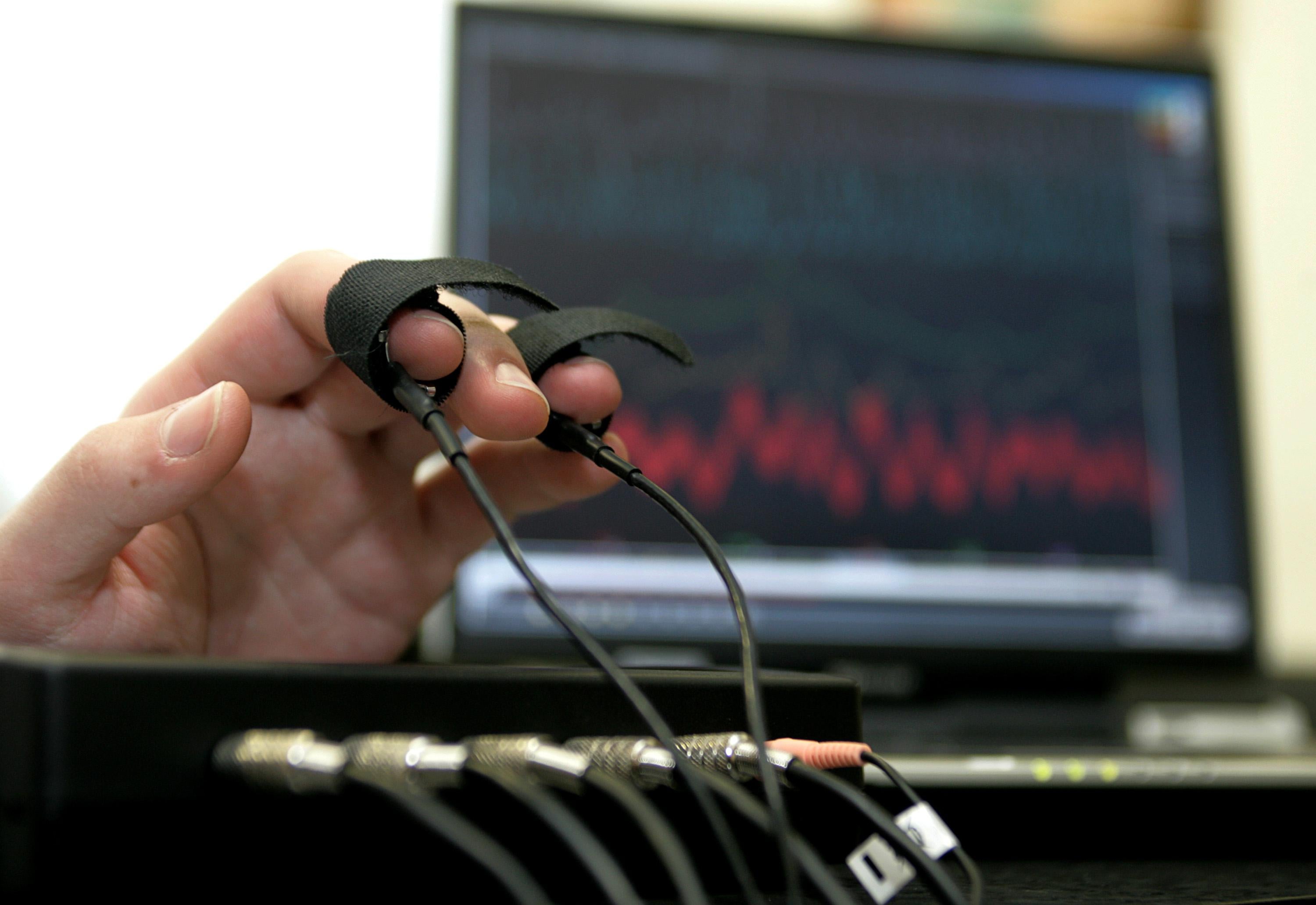An Indiana man who made thousands of dollars teaching people how to beat lie detector tests was sentenced to eight months in federal prison on Friday. Though Chad Dixon argued there was nothing inherently illegal about teaching polygraph countermeasures, he couldn’t deny that he had continued to work with two students (actually undercover agents) even after they confided that they planned to use his methods to fraudulently obtain jobs with the federal government. Dixon might not be the last polygraph expert to land in jail: According to a report last month from McClatchy Newspapers’ Washington, D.C. bureau, the federal government has begun to deliberately target for prosecution people who teach polygraph-beating techniques. Why is the government so keen on pursuing anti-polygraph instructors? And why does it put so much stock in a technology that the rest of the world abandoned long ago?
If you’ve spent more than six hours of your life watching television, you probably know how polygraphs work. The subject undergoes questioning while attached to a machine that measures various physiological responses, like the subject’s blood pressure, breathing, and perspiration levels. Theoretically, when a person lies, one or more of these responses will spike; those spikes are duly recorded by the machine and used as a jumping-off point for further interrogation.
It’s relatively simple technology, and the purported countermeasures are simple, too. Dixon and others claim that if you can learn to control your breathing or your heart rate, among other things, you can beat a polygraph test. While experts disagree as to whether or not these methods are effective, even polygraph’s most ardent defenders will admit that the test is imprecise and can elicit false positives and negatives. Because of this, polygraphs have gradually fallen out of favor. In 1998 the Supreme Court ruled that state and federal governments were free to ban polygraph results from courtrooms. A 1988 law called the Employee Polygraph Protection Act barred most private employers from forcing employees or job applicants to take the tests. (That’s right: The polygraphers in this classic Mr. Show sketch were BREAKING THE LAW.)
But government agencies are still free to use the tests—and they do, often. As Marisa Taylor wrote for McClatchy Newspapers last year, “more than 73,000 Americans across the country submitted to polygraph tests [in 2011] to get or keep jobs with the federal government, although such screening is mostly banned in the private sector and widely denounced by scientists.” Why would the government cling to such a controversial technology? Because the tests are an effective way to get somebody to talk. As Taylor wrote, “Polygraphers routinely coax people into revealing secrets or experiences they haven’t told their friends, relatives or therapists. The polygraphers record the sessions and keep details of the results, sharing them across the government when someone applies to different agencies.”
You can understand why the government would find value in a screening method that encourages current and potential employees to be forthcoming about their personal histories. Many government employees have access to sensitive information, and the more an agency knows about a given employee’s background, the easier it theoretically becomes to determine whether that employee is trustworthy. But I still think it’s odd that the government would so vigorously pursue those who claim to teach how to beat a test that is so unreliable in the first place. As a federal security official told McClatchy, such a strategy “serves to elevate polygraph to something it hasn’t been before, that teaching countermeasures is akin to teaching bomb making, and that there’s something inherently disloyal about disseminating this type of information.” This is silly. Polygraph countermeasures are not state secrets, and countermeasure instructors are not evil geniuses. Indeed, Chad Dixon was a Little League coach with no law enforcement background who got into polygraph consulting because he couldn’t get hired as an electrical contractor. According to the Washington Post, Dixon told the judge that “I was so dead set in my mind that this machine was bogus and I think this mind set made me feel that what I was doing wasn’t illegal and wasn’t that bad.” Well, it was illegal, apparently. But that doesn’t mean the whole thing isn’t bogus all the same.
